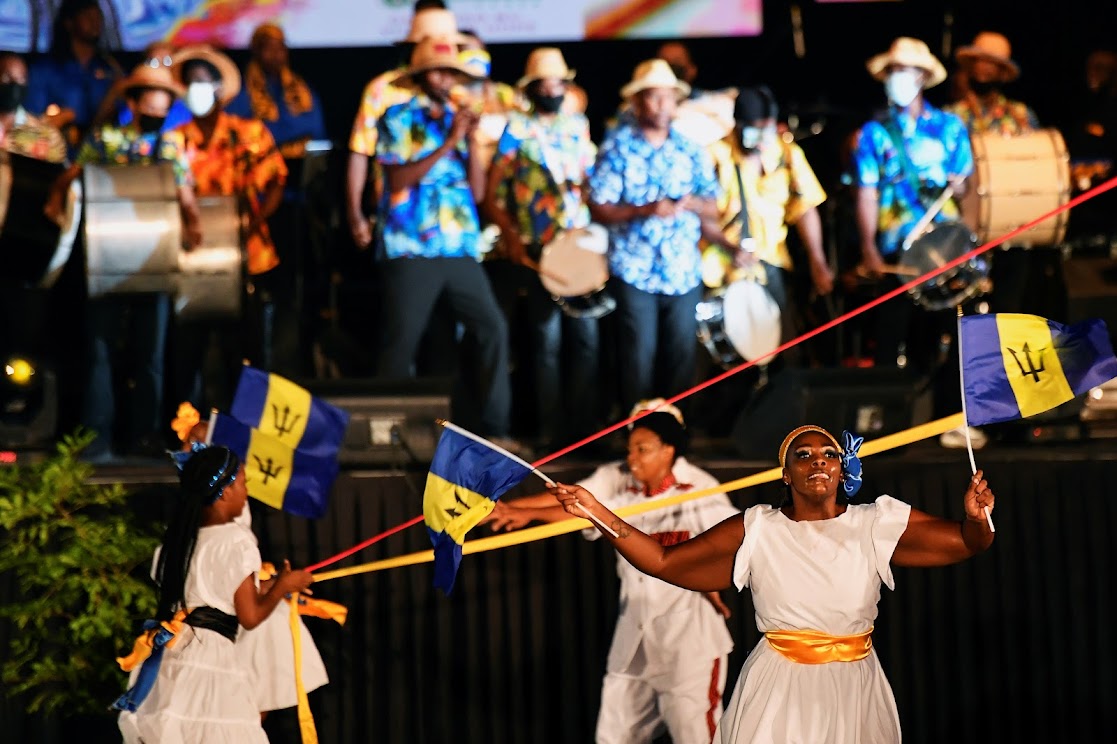Celebrations in Barbados as the country abandoned the British Crown, to become world's newest republic!
Wellington, Wednesday,
Just a few hours after the shock announcement of the death of her Majesty Queen Elizabeth II after more than 70 years in power, the remaining countries of the Commonwealth who had the Queen as their head of state are now increasingly discussing finally cutting all ties with the London government.
From Wellington to Ottawa, passing by Canberra and Kingston, politicians in many countries' capitals are hotly debating whether or not their nations should become fully sovereign republics.
Starting in Jamaica, a kingdom of the Commonwealth that joined the Commonwealth in 1962, following independence from Britain. How does the Caribbean island feel about having King Charles III, as its head of state?
Younger Jamaicans in particular view their country's ties to the British monarchy as seriously outdated. One youth, who only gave his name as "JD", told reporters from Australia's ABC TV: "I've never been one to acknowledge the Royal family…", and added, "For me personally, it's neither here nor there."
JD believes it's well past time that Jamaica becomes a republic. And polls indicate that a majority of Jamaicans agree with him. For many years now, there has been a debate about whether or not to keep the monarchy in Jamaica but never has the island been as close to becoming a republic, as right now. Jamaicans watched attentively when, last year, Barbados abandoned the Queen for a new, elected - President. After this, Jamaica announced it too would make plans to do the same in the years to come.
When Prince William and his wife Catherine visited Kingston earlier this year, it did not play out the way the palace was hoping. Ahead of their arrival in Jamaica, the second stop on their three-country tour, a group of 100 prominent Jamaicans signed a letter seeking reparations from the British crown for "crimes against humanity". And far from winning over the restive natives, televised images of the Royal couple shaking hands with black children through a wire fence brought back memories of the worst aspects of colonialism.
But Jamaica is far from being the only place that could be preparing to wave goodbye to King Charles III, scarcely even giving him time to put his crown on. In Australia, the new Prime Minister, Anthony Albanese, of the Australian Labor Party, has already mentioned plans to leave the monarchy meaning that today an Australian republic seems more likely than it has ever been.
In 1999, a referendum revealed a nation deeply divided over the issue, with just 54,9%, particularly in rural areas, voting against the reform while 45,1%, mainly in the big cities, supported it. To make matters worse (for monarchists) many of those voting against the republic just disagreed on what might replace it.
New Zealand too, has long been having a debate about the monarchy and support for it there is currently at an historic low. As in Australia, the debate reflects the divide between native peoples and the descendants of European settlers. After all, New Zealanders already have a monarch! This is the seventh 'Maori King', Tuheitia Paki, a former truck driver whose coronation took place in 2007 with thousands of people in attendance at Turangawaewae Marae in the region of Waikato, in North Island.
Finally, over to Canada, where most English speakers still support the monarchy, but two distinct groups of people strongly oppose it: the native Canadians and the French Canadians. Quebecers (les Québécois in French), are a determinedly liberal people who view the monarchy as outdated and a reminder of a past period of colonization and discrimination.
Britain colonized Canada as long ago as the late 1500s, and the country formally remained part of the British empire until 1982! Although now it is a member of the Commonwealth, with the British monarch as head of state, recent polls have found that more than three-quarters of Canadians feel little or no attachment to the British crown.
However, there is hope for Charles III. Changing Canada's constitution would be complex and politically risky. Quebec, which has sought independence twice in referendums, has never formally approved the constitution and most of the treaties with indigenous peoples, treaties that set up reserves, guaranteed hunting and fishing rights, and even included payments, were signed with the Crown, not the Canadian government!
However, there is hope for Charles III. Changing Canada's constitution would be complex and politically risky. Quebec, which has sought independence twice in referendums, has never formally approved the constitution and most of the treaties with indigenous peoples, treaties that set up reserves, guaranteed hunting and fishing rights, and even included payments, were signed with the Crown, not the Canadian government!
In a declaration following his accession to the throne, King Charles III addressed his nation and promised to "Seek the peace, harmony and prosperity of the peoples of these Islands and of the Commonwealth Realms and Territories throughout the world." Well, he can hope!
Tags:
Exclusive!

